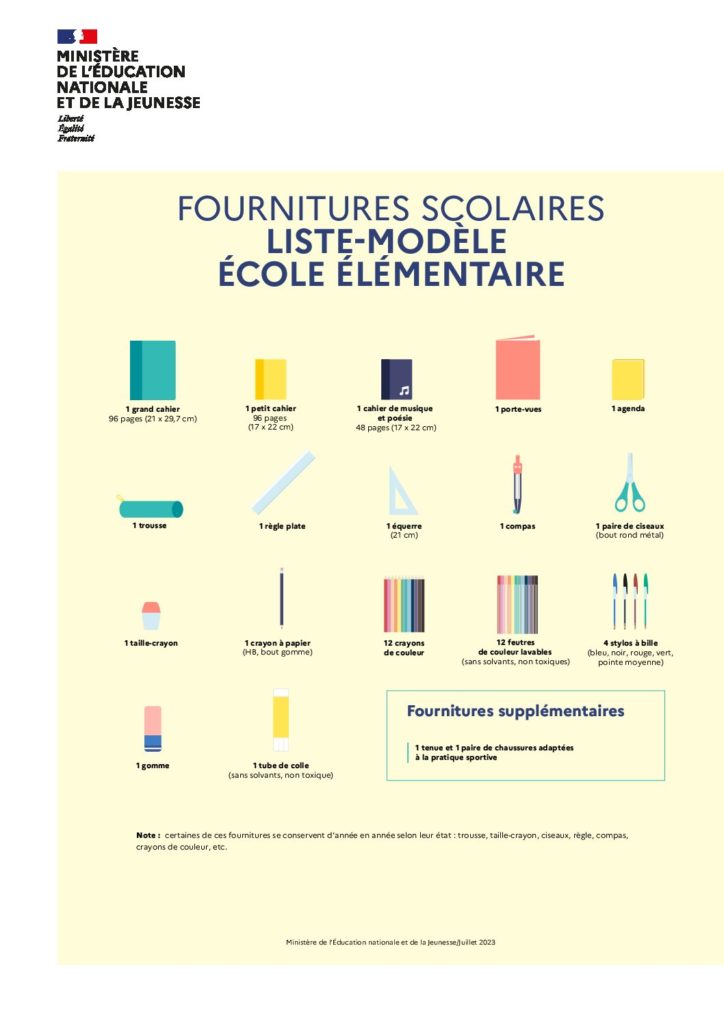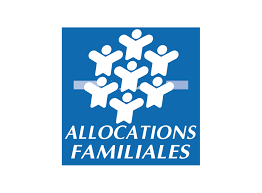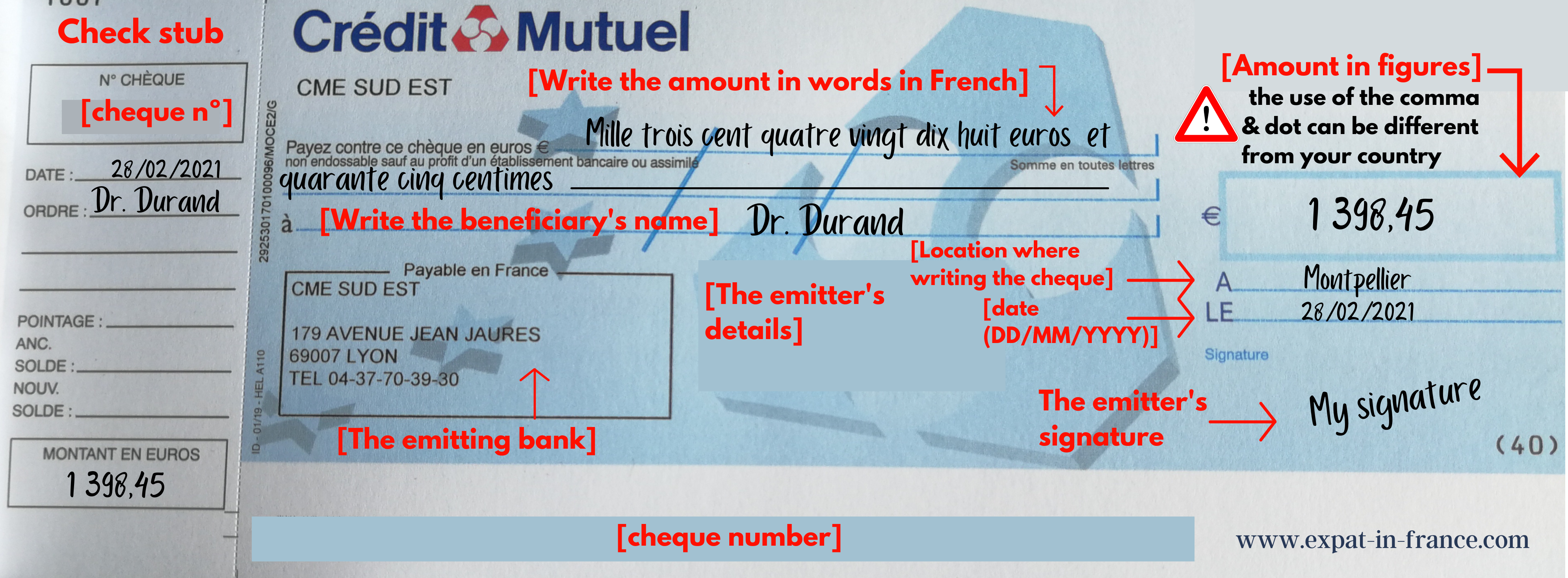La rentrée is the French word for the month of September in France when the new school year starts. In other words, it’s the French back-to-school! It is when everyone is coming back from the summer vacation and organises their new year. The whole of France goes back to normal life in autumn after being shut down for July and August at the beach or elsewhere.
Table of Contents
Tip 1: La rentrée in France is not only about back to school
Back to school for pupils and students
Prepare for the new academic year
If you have school-age children, you will need to prepare la rentrée scolaire for them. If it is not their first school year in France, you should have been provided with a stationary list last June or July by the French school either on the school website or on the school notice board. And it’s not only about buying a new backpack! You’ll get a detailed list of new books and pens and more.
This list should be standardised by the school board to avoid unnecessary expenses. Some schools or the school parents’ association also facilitate group purchases to give access to cheaper supplies.
The Department for Education also provides a 2023 school supplies list for primary and secondary schools that can help if you haven’t been provided with the school list in advance.

Going back to school CAF allowance
For many families, la rentrée means extra expenses when you have school children! The first few weeks of the school are busy and every little help counts.
Depending on your annual income and your number of children, you may receive a Start of the school year allowance (Allocation de Rentrée Scolaire – ARS) to help with the rentree expenses. CAF (Caisse d’Allocations Familiales) is a French government body that provides subsidies to families. This allowance is pais the month of August so that you can face the September expenses.
This is a great financial help for families, so check out below if you may be entitled to it to send your request ASAP and not miss this opportunity!
If it’s your first time in France and haven’t applied to the CAF start of the school year allowance yet, you still can submit the request by sending this ARS request form. Select the Metropole option if you live in mainland France. You will need to send the paper form to your CAF nearest office with the backup documents stated on page 4 if you are not registered with CAF yet. If you have a CAF number (numéro d’allocataire), you should make the ARS request via your CAF online account.

The thresholds to receive the ARS are:
| The income threshold for 2023 ARS subsidies based on 2021 income and the 31st of July 2023 family situation | |
|---|---|
|
The number of children to support (between 6 and 18 yo.) | Annual income threshold |
|
1 | 25 775 € |
|
2 | 31 723 € |
|
3 | 37 671 € |
| 4 | 43 619 € |
|
Per extra child | 5 948 € |
INSIDER TIP: If your income is slightly above the threshold, still make the request as the CAF may pay an adapted proportional amount.
For children who will be aged between 6 and 15 on 31 December following the start of the new school year: if you are entitled to this allowance, you do not need to do anything. The back-to-school allowance is paid automatically.
For children under 16, there is nothing to do. The CAFs automatically pay the ARS to families already in receipt of benefits who meet the conditions.
For children aged between 16 and 18, you must declare to the CAF that your child is still at school or in an apprenticeship for the start of the 2023 academic year in order to receive the new academic year allowance.
If you are not a registered with CAF yet, you should go to the website www.caf.fr, download a form under the heading Online services > Apply for a benefit > Back-to-school allowance, print it out and return it completed to your CAF.
| ARS amount per child | |
|---|---|
|
Child age | Allowance amount including the 2023 reevaluation |
| 6-10 y.o. (1) | 398.09 € |
|
11-14 y.o. (2) | 420.06 € |
|
15-18 y.o. (3) | 434.60 € |
The start of the school year allowance is paid mid-August.

La rentree litteraire and the publishers’ massive book release
If you are a reader and live in France, you may have noticed that from mid-August to October, the media are presenting many book releases and author of the year promotions.
Autumn is all about grand prix du roman (grand prize for best novel) in the literature world. For the writers, translators and publishers, this is a time of the year not to miss as most of the releases and media attention is right now. About 40% of the novel’s annual sales are made during the 2-3 months of la rentree litteraire!
For the readers, it is a bit like being in candy land with overwhelming options to choose from!
You will be able to discover many first-novel writers or read your favourite author’s latest book! It is the best time of the year for most publishers to publish promising debut novels, considering the extra media attention.
Both French literature and foreign translated novels are released massively at this time of the year.
It is a great time to go to your local bookshop to ask them for their advice on the new releases!
The French political start of the year
Another French tradition when French politicians to return to work! Most French political parties organise meetings for active political members to prepare the political rentree.
These gatherings are called the “Université d’été”! Don’t get confused… these events are not organised by Universities.
Intellectuals, members of civil society, researchers and of course the party campaigning members are invited to conferences, debates and training. The Université d’été often marks the end of the summer break for the political parties.

Tip 2: Don’t wait September to plan your annual activity calendar
Get your matriculation calendar in order!
Have you already tried to start a new activity in France in November or any time during the school year? It can be pretty hard to matriculate anywhere at this time of the year! The concept of paying as you go is not so common, especially with group activities as this would affect the learning curve of the rest of the group.
Practising a regular activity is one of the best ways as an expat to meet French people and make new friends! But to make sure you can matriculate, don’t miss out on the September matriculations! You may not be able to register later on depending on the association.
French associations and clubs organise their activities annually based on the school year. Some associations have one or 2 matriculation days in September and these could be your only opportunity to register!
Get up (very) early!
If you are matriculating into a public association or when the matriculation fee is very cheap, people tend to start queueing very early in the morning to guarantee their subscription! You may need to start queuing as early as if you would go to Prefecture for a residence permit renewal!
A few years ago I matriculated my niece to baby swimming classes with the local association and I started to queue at 5 am and I couldn’t even get the slot I wanted! It was the same situation when I registered for pilates classes with the local association (association de quartier). I went at 4 am with a folded chair, a blanket (yes, it was cold at that time) and a thermos of coffee! Some people were even organised in groups playing cards, and others were watching movies on their tablets!
Better get organised than arriving at the opening time to a queue going all around the block!
As you can see, this situation applies both to adult and children’s activities! So, if you are a family, I advise you to carefully check the matriculation calendar for every activity and association.
Some associations also organise discovery classes throughout September to attract new members and let you try out before the actual subscription days.
I would, therefore, recommend you start looking from mid-August or even before to know which activity you want to try out and check the matriculation calendar not to miss out on anything.
INSIDER TIP: If you were already doing an activity you liked last year, you may have priority for this year’s matriculation as early birds depending on the association policy.

Tip 3: Optimise your rentrée scolaire shopping
Avoid the September rush
Since we are almost early September as I publish this article, if you haven’t done your rentrée shopping, well… you will know for next year.
You may have understood that for many things the end of summer means a big rush to organise the start of the (school) year as everyone gets back from holidays.
I haven’t really seen such phenomena at this level in the countries I have lived in. Of course, people get ready for school or to go back to work, but not to such an extent and not for so many sectors of activity. The only exception would be sports. This is one of the few sectors that doesn’t have a rentree as Anglo-Saxon countries would have for example.
I personally try to avoid the supermarkets or stationery’s shops on the weekends before and after the first day of school.
I strongly recommend you do your school supplies shopping as early as possible to avoid the early September shopping rush and occasional shortages.
Take advantage of the rentrée discounts
If you need to take a mobile phone subscription, September and also January are a great time to get discounts!
You will also see discounts for many different products in September, so if you are unhappy with some service you are paying for, changing contracts in September with the rentrée discounts can get you some good deals.
In short
To summarise, to have a stress-free rentree in France, you need to anticipate.
Some things can already be done in June or early July before going on vacation. And if you didn’t manage to anticipate this year, you can still do it next year.
And remember, the rentrée also applies to adults! French life keeps us young, right? 🙂
If you found this post useful, your friends will like it too! Share the love with your friends, this will help me too!
Liked this post? Pin it for later!





3 Comments
Sarah D.
That is precious info, very useful for every parent! Thank you very much Mademoiselle Guiga!
I personally used to love “la rentrée”: new books, new agenda, new beginnings, guessing what teacher we were going to have, everything ready for the first day…that’s my “good student” side! 😀
Lara Tabatabai
I have already done my shopping for la Rentrée and to save money I went to 3 separate shops. It is very useful to know about the ‘allocation de rentrée scolaire’. Thank you very much for letting us know of the details !
Mademoiselle Guiga
Hello Lara, Many thanks for your comment!
I see that you are well prepared! I’m happy I could help you with the allocation de rentrée scolaire information.
Have a good end of the summer!